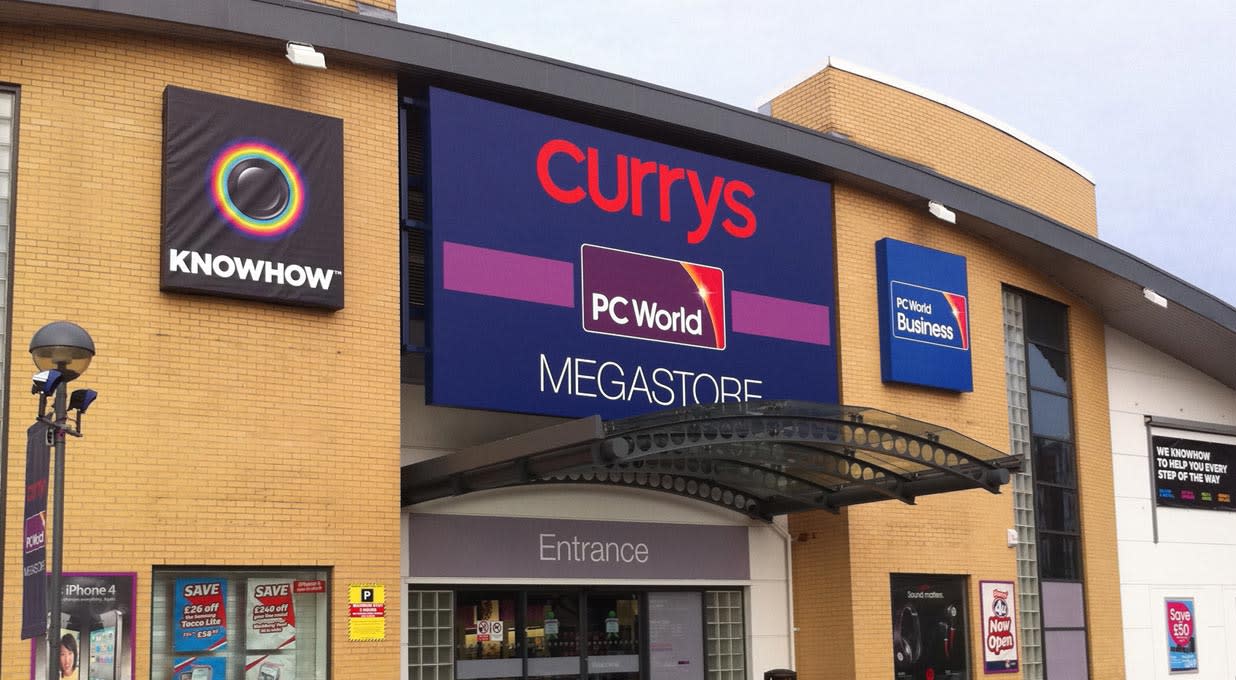As previously guided, Currys’ full-year revenue fell 2% to £8.5bn on a like-for-like basis, ignoring currency impacts. This was due to a fall in customer spending as persistent inflation and rising interest rates took their toll on consumers.
Group underlying pre-tax operating profit grew 10% to £118mn, in line with guidance. This was driven by a focus on more profitable sales and a successful cost-cutting programme. Strong recovery in the Nordics was enough to offset a poor UK performance.
Free cash flow increased by £174mn to £82mn, driven by lower capital expenditure and improved operational efficiency. The year finished with net cash of £96mn, improving from a net debt position of £97mn.
Trading in the early part of the year has been in line with expectations with the Group planning “confidently” for the year ahead.
The shares were down 4.9% in early trading.
Our view
After a year of takeover talk in what has been a tough trading environment, meeting guidance with a 10% rise in full year profit should be considered a good result. The continued recovery indicates potential easing of market headwinds and signals a cautious optimism for the future.
Consumers have struggled to justify upgrading appliances, with demand for small electrical goods particularly affected. But an increase in UK consumer confidence, driven by rising economic optimism, suggests that a recovery in discretionary spending may be underway. Even a partial return to the longer-term growth trends Currys previously experienced could significantly benefit the group.
Importantly the Nordics have also shown some signs of life, sharing in the group’s 10% underlying profit growth. But while margins and market share have improved, prolonged weakness in consumer demand will be on everyone’s mind. A continued improvement will need to be seen before management can say the recovery job is done.
Despite the challenges, there are some bright spots.
The group's services channels have been a beacon of light. Services typically have higher margins than goods sales, so can help to relieve some of the pressure being felt.
And the sale of its Greek electronics retailer, Kotsovolos, means the group finished the year with £96mn net cash. This greatly improved balance sheet brings with it the potential to return any surplus cash to shareholders in the form of a dividend. Although the board has announced its intention to recommence shareholder returns, this is not guaranteed.
Profit growth has been strong, but their cyclical nature means consumer electronics will always be a challenging place to be, particularly as spending power remains under pressure. Key to convincing markets that the recovery is now in full swing will be continued sales progress in the Nordics. While the balance between sales and margins continues to improve, it’s essential that encouraging momentum is maintained if the share price is to avoid slipping back to pre-offer levels.
Environmental, social and governance (ESG) risk
The electronics retail sector is low risk in terms of ESG. Data Privacy and Cybersecurity, Human Rights - Supply Chain and Human Capital are key contributors to ESG risk.
According to Sustainalytics, Currys management of ESG risk is strong. It has set up a dedicated ESG board and executive compensation is tied to performance on these issues. There is also an environmental policy, including a commitment to net zero and interim targets. However, ESG-related disclosure falls short of best practice.
Currys key facts
All ratios are sourced from Refinitiv, based on previous day’s closing values. Please remember yields are variable and not a reliable indicator of future income. Keep in mind key figures shouldn’t be looked at on their own – it’s important to understand the big picture.
This article is not advice or a recommendation to buy, sell or hold any investment.No view is given on the present or future value or price of any investment, and investors should form their own view on any proposed investment.This article has not been prepared in accordance with legal requirements designed to promote the independence of investment research and is considered a marketing communication.Non - independent research is not subject to FCA rules prohibiting dealing ahead of research, however HL has put controls in place(including dealing restrictions, physical and information barriers) to manage potential conflicts of interest presented by such dealing.Please see our full non - independent research disclosure for more information.


